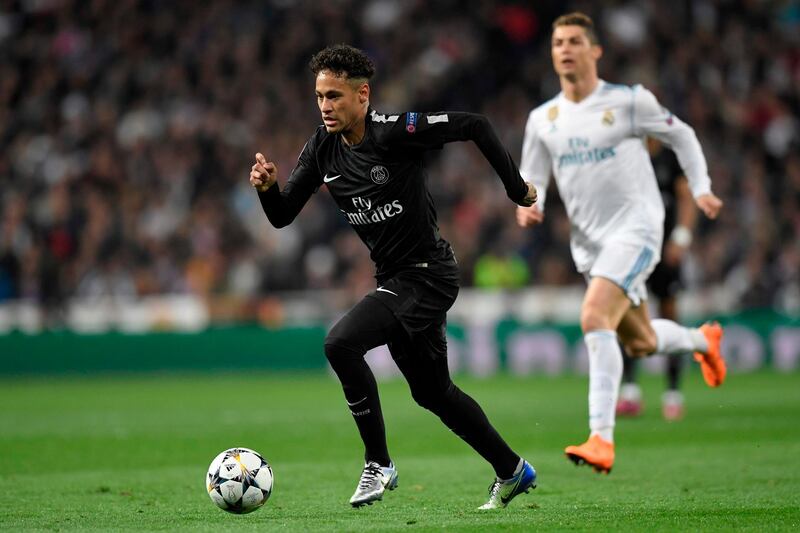Free-spending French giants Paris Saint-Germain (PSG) are set to face Uefa sanctions for breaches of its Financial Fair Play (FFP) rules, according to a report by the Financial Times on Wednesday that claims PSG "overstated" sponsorship contracts to the tune of €200 million (Dh907m).
Bankrolled by Qatari owners, PSG smashed the world transfer record by signing Brazilian star Neymar for €222 million in August and committed to completing another €180 million deal for French teenage sensation Kylian Mbappe this summer when agreeing a one-year loan deal from Monaco a few weeks later.
Introduced by European football’s governing body in 2011, FFP limits clubs to making losses of no more than €30 million over three seasons.
"Preliminary investigations show that sponsorship contracts worth about €200 million have been 'overstated' at the Qatari-owned football club," said the Financial Times report.
“Unless Uefa can be persuaded to assign a higher value to the sponsorship deals, the French club is on course to breach FFP rules, according to people familiar with the process.”
_______________
Read more:
German giant Bayern Munich ‘ignored’ rights abuses before Qatar deal
_______________
PSG issued a response to the report in a statement on Wednesday evening in which they hit out at “erroneous information ... directed against the club in the British media”.
The statement added: “The procedure is ongoing. Paris Saint-Germain are in permanent contact with representatives from Uefa and will appear with complete equanimity before European football’s governing body on April 20.”
Uefa opened an investigation into PSG’s compliance with FFP just weeks after the deals for Neymar and Mbappe were completed.
“The investigation will focus on the compliance of the club with the break-even requirement, particularly in light of its recent transfer activity,” said a Uefa statement in September.
PSG have already fallen foul of FFP. The club were fined €60 million in prize money earned from playing in the Champions League in 2014.
Back then Uefa deemed PSG had artificially inflated their income using a sponsorship deal with another Qatari state-owned enterprise, the Qatar Tourism Authority.
“The contract between PSG and the Qatar Tourism Authority has been carefully considered and a fair value, significantly below that submitted by the club, has been assigned,” Uefa ruled at the time.
The sanctions could be far tougher for a second offence, with the possibility that PSG could even be excluded from competing in the Champions League unless they balance their accounts by the end of the club’s financial year in June.
“If the club is found in breach, anything less than the imposition of onerous sanctions is likely to lead PSG’s rivals, indeed the footballing world, to question the validity of Financial Fair Play,” Karish Andrews, a partner in the Sports Business Group at leading London law firm Lewis Silkin, told AFP.
With Neymar sidelined by injury, PSG’s attempts to win the Champions League for a first time fell flat again last month as they were dumped out 5-2 on aggregate by reigning champions Real Madrid in the last 16.





